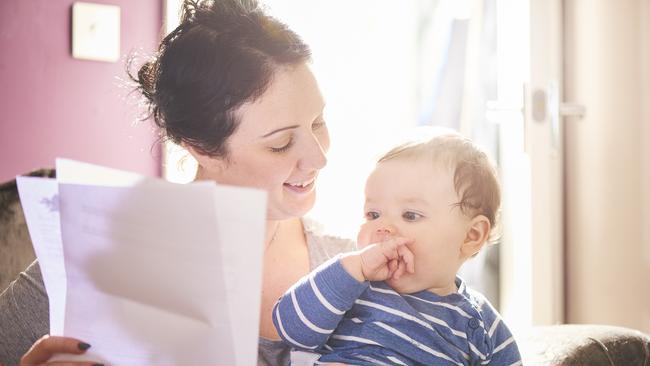Kids and COVID: how business can learn from lockdowns to keep parents working in the future
The need for businesses to support parents on leave or with partners on leave has never been more clear, according to ING.

Children and a coronavirus lockdown do not mix, with a report showing new parents have found the lockdown an isolating and challenging experience.
But the lessons of providing flexibility to parents could set businesses in good stead for a better tomorrow, industry figures say.
The report, Parental Leave Equality, from ING bank, surveyed 400 parents who had been on parental leave during the coronavirus pandemic. It found 73 per cent were women and that many had experienced anxiety, isolation, uncertainty and exhaustion during the lockdown.
The researchers say the experience of new mums and dads during the lockdown has significant implications for business, both in having engaged, relaxed staff and keeping women in the workforce.
Many parents will know that homeschooling a child during lockdown can be incompatible with working from home, leading many to put in longer hours. Most parents surveyed reported limited contact with friends and family while on parental leave and feelings of isolation raising a baby.
The need for businesses to support parents on leave or with partners on leave has never been more clear, according to ING’s head of retail banking Melanie Evans.
Ms Evans said companies that gave proper thought to parental leave policies would be in a better position to retain staff and get a better performance from staff.
“People who are satisfied and happy and feeling great in their personal lives perform far better at work than if things were a challenge at home. It’s not just about employee retention and doing the right thing it’s also about making life easier,” she said.
“If people aren’t able to juggle their employee responsibilities they are more likely to search for alternative employment options.”
Ms Evans said ING had learned the effect of being accommodating and flexible after reforming and boosting its parental leave policies in 2019.
“Flexibility is incredibly important, many of our team members are in households where both parents work. Another key moment is when one partner returns to the workforce,” she said.
Most workplaces with parental leave only extend it to mothers, but ING removed primary and secondary caregiver requirements a year ago, a move which saw the number of men in Ms Evans’s team taking some parental leave increase from 10 to 40.
ING offers 14 weeks paid parental leave to parents for the first two years of a child’s life.
Research from the University of Wollongong shows Australian women are hit with a wage penalty of around 5 per cent and 9 per cent for two children, with the penalty growing over time due to increased part-time work and lack of advancement. It suggests that if men were encouraged to take more parental leave this would shift the burden off women and improve their lifetime earnings.
Ms Evans said past research at ING had shown two in five men felt they would be judged by their boss for taking parental leave.
“There is absolutely a stigma associated with that,” she said.
“The silver lining of COVID … is that it’s made the challenges of working family life far more visible. It’s really encouraged employers and organisations to act with more understanding, more compassion and more flexibility.”




To join the conversation, please log in. Don't have an account? Register
Join the conversation, you are commenting as Logout